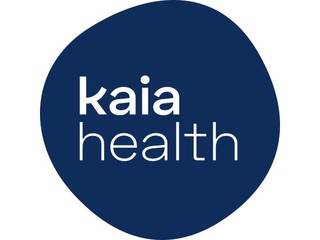

With that in mind, a number of startups have begun to step up to finally address these issues. That includes Sword Health, a company that provides an end-to-end solution for MSK issues, starting from prevention, then helping with acute conditions and chronic pain, all the way to post-surgical recovery, all done virtually.
On Monday, the company announced a big new round of funding, taking a $163 million Series D that has valued it at $2 billion. The round was led by Sapphire Ventures, as well new investors Sozo Ventures, Willoughby Capital, ADQ and Localglobe, along with General Catalyst, Khosla Ventures, Founders Fund, Bond, Transformation Capital, and Green Innovations. This more than doubles the company’s total funding, bringing it to more than $320 million.
Founded in 2014, the company’s program, called Sword+, consists of three different component, starting with ASK a PT, which allows members to connect with physical therapists at any time of day, who will answer their questions about their physical pain. The physical therapist will create a personalized program for that member. The second part is called Digital Guardian, consisting of a digital therapist who tracks the member’s progress and corrects their form in real time through wearable and video motion capture.
The final part of the program is called The Academy, and this part of the solution gives member customized educational content.
By combining these three elements, the Sword Health solution has resulted in a 50% reduction in pain, a 64% reduction in surgery intent, and a 67% reduction in medication consumption for its members. It has also led to 34% in cost savings.
Like many other companies in the digital health space, Sword has seen substantial growth since the beginning of the pandemic: in the last 18 months, the company says that three out of four employers that conducted head-to-head evaluations among MSK solutions have selected Sword. The company is now working with insurers, health systems, and employers in the U.S., Canada, Europe, and Australia.
“I started SWORD after a traumatic personal experience where I saw first-hand the challenges that families face when they have to recover a loved one,” Virgilio Bento, founder and CEO of SWORD Health, said in a statement.
“It’s been truly humbling to see the impact SWORD is having on thousands of members across the globe. With this new funding, we will accelerate our value creation for members, self-insured employers and health plans, as we continue to build the flagship digital MSK solution in the healthcare world, everywhere and for everyone.”
The MSK space
As mentioned above, there are a number of startups in the MSK space competing for dollars right now, the most well known of which is likely Hinge Health, a developer of back and joint pain care pathways, which combines wearable sensor-guided exercise therapy with behavioral change, along with one-on-one health coaching and education. The company raised a $600 million round, at a $6.2 billion valuation, in October, giving it over $1 billion in funding.
There’s also Kaia Health, a provider of virtual care that uses machine learning to give patients personalized care that they can access on their own devices, and Luna On-Demand Physical Therapy, which sends physical therapists into the patient’s home. The two companies recently announced a partnership in which Kaia will offer Luna’s services as part of its platform.
There’s also Clearing, a healthcare platform focused on providing opioid-free pain relief, which has raised $20 million, and Vori Health, a company that provides digital and in-person musculoskeletal care, which raised more than $50 million in July from Intermountain Healthcare and Ascension.
(Image source: swordhealth.com)


















